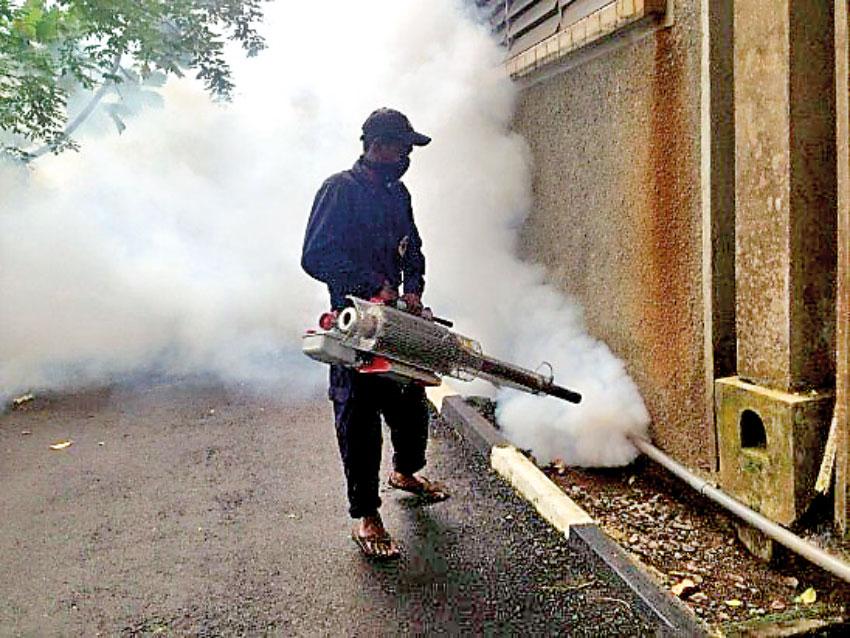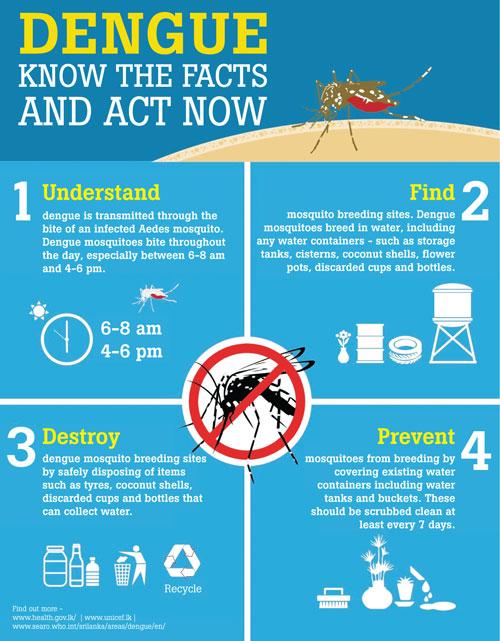11 Jun 2021 - {{hitsCtrl.values.hits}}

Growing population densities, unplanned urban development, poor water storage and unsatisfactory sanitary conditions are all common factors that contribute to the worsening burden of this mosquito-borne disease
 Given the prevailing weather conditions the Colombo Municipal Council has taken immediate measures to start fogging as means of keeping dengue mosquitoes at bay. The current international obsession with COVID-19 has momentarily overshadowed Dengue, a well-known, preexisting monster that is lurking in the shadows. Although preventable, Dengue isn’t any less deadly than a coronavirus infection.
Given the prevailing weather conditions the Colombo Municipal Council has taken immediate measures to start fogging as means of keeping dengue mosquitoes at bay. The current international obsession with COVID-19 has momentarily overshadowed Dengue, a well-known, preexisting monster that is lurking in the shadows. Although preventable, Dengue isn’t any less deadly than a coronavirus infection.
According to the Epidemiology Unit of the Ministry of Health – Sri Lanka, a total of 31162 suspected dengue cases for the year 2020 and 7873 suspected dengue cases were reported from all over the island from January 2021 up to now while four have succumbed to the illness.
 The Ministry of Health’s Dengue Control Unit recently announced that the disease is spreading across Colombo, Kalutara, Gampaha, Kegalle, Kurunegala, Matale and Kandy Districts.
The Ministry of Health’s Dengue Control Unit recently announced that the disease is spreading across Colombo, Kalutara, Gampaha, Kegalle, Kurunegala, Matale and Kandy Districts.
Dengue is a mosquito-borne tropical disease, caused by the dengue virus. Dengue viruses are spread to people through the bite of infected mosquitos of the Aedes species (Aedes aegypti or Aedes albopictus) mosquito.
Although this is a fairly common disease, that can escalate to epidemic proportions in the south, and south east Asian regions, it remains more or less, a textbook concept in the west.
Assigning particular days to shed light on certain diseases is one of the methods that the World Health Organization (WHO), employs to bring awareness to lesser-known topics, or to garner mass attention to a given subject.
Asia Dengue Voice and Action (ADVA) group, along with the International Society for Neglected Tropical Diseases (ISNTD) have been striving to assign an international day for Dengue.
Since Southeast Asia has been a dengue hotspot, World Dengue Day was declared for the first time by ASEAN Health Ministers, on June 15, 2011, and each subsequent June 15th has been commemorated to be the ASEAN Dengue Day. This important annual event allows ASEAN members, in coordination with WHO, to consolidate dengue prevention and control measures.
In 2018 the International Society for Neglected Tropical Diseases (ISNTD) started a worldwide dengue awareness campaign, which included calling on the UN and WHO to designate a World Dengue Day. The World Dengue Day campaign is aiming to achieve the same as the ASEAN Dengue Day, on an international scale given the rapidly growing global threat of dengue.
According to ADVA, growing population densities, unplanned urban development, poor water storage and unsatisfactory sanitary conditions are all common factors that contribute to the worsening burden of this mosquito-borne disease, not just for ASEAN, but for many countries around the world.
“The disease has a significant impact on the socio-economic status of every country. Tackling dengue is everyone’s concern.”
Approximately 29.4 % of dengue cases were reported from the Western province. The highest numbers of dengue cases were reported during mid-2017.
The outbreak situation in 2017 warranted extensive and regular removal of possible mosquito breeding sites from the environment, along with strengthened patient education on management of fever which resulted in a relatively low mortality. The Epidemiology unit emphasizes that it is very important to seek medical attention in the event of fever and to do relevant laboratory investigations at least by day three of the illness.
21 Dec 2024 1 hours ago
21 Dec 2024 2 hours ago
21 Dec 2024 3 hours ago
21 Dec 2024 6 hours ago
20 Dec 2024 20 Dec 2024